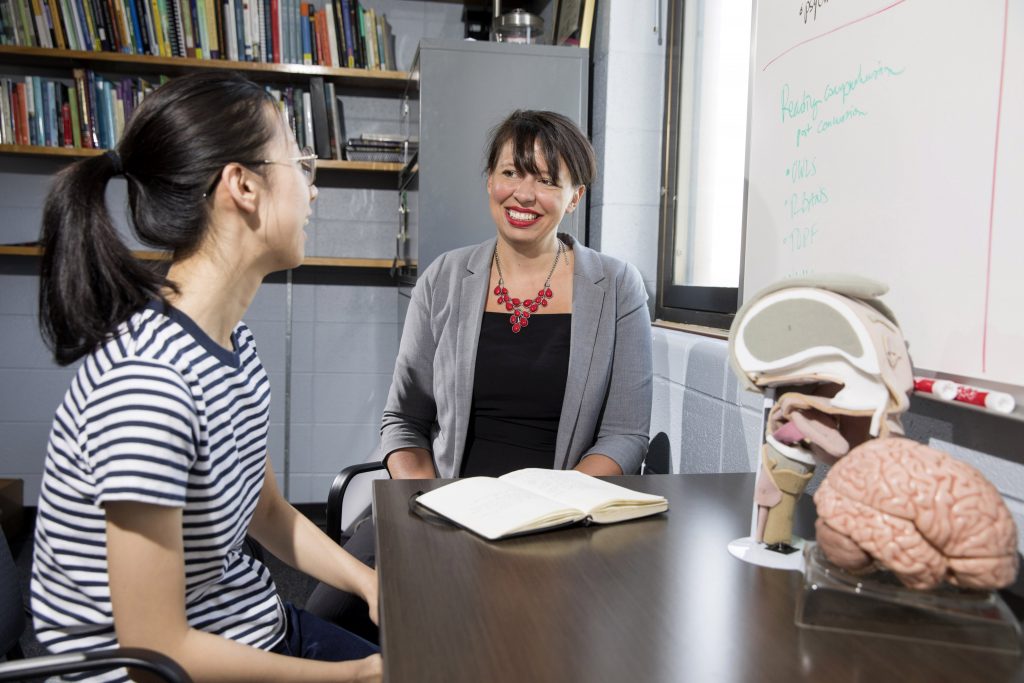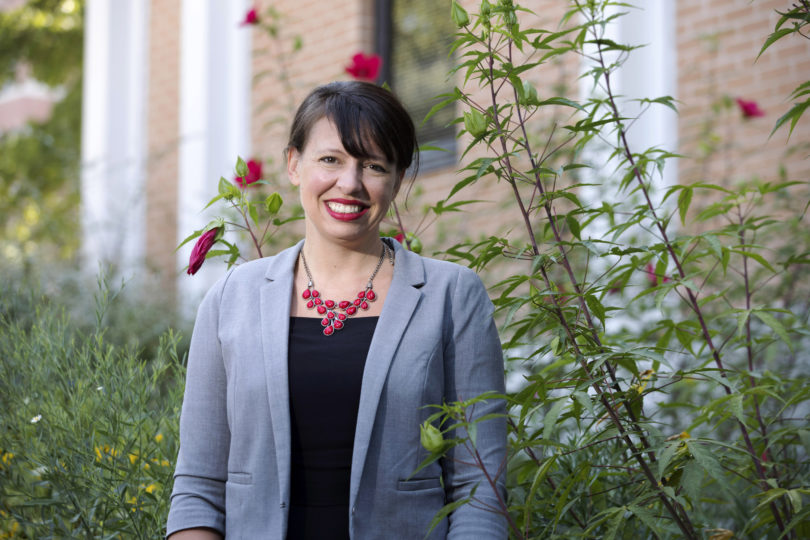A concussion is a type of traumatic brain injury caused by a bump, blow or jolt to the head. Typically, symptoms of concussions subside in a few weeks. However, about 20% of cases present a more complicated situation.
To support college students with concussions, Katy O’Brien, an assistant professor in the Mary Frances Early College of Education’s department of communication sciences and special education, received a $200,000 grant from Andee’s Army to develop and test a peer mentoring program.
Andee’s Army is a nonprofit organization dedicated to funding the recovery and rehabilitation of children and young adults who have sustained brain and spinal cord injuries.
Thanks to the grant, O’Brien, along with the Shepherd Center—an Atlanta-based hospital dedicated to the care of people with brain and spinal injuries—developed Success in College after Concussion with Effective Student Supports (SUCCESS) to engage clinical experts and college students recovering from concussions through peer mentoring.
“One in 75 students experiences a concussion while in college,” said O’Brien, who is a co-principal investigator of the study with Tracey Wallace, a clinician researcher at the Shepherd Center.
The SUCCESS program serves colleges and universities in the Atlanta area by pairing mentors, who have sustained concussions and successfully recovered, with newly injured mentees. This fall, O’Brien will bring the program to the University of Georgia.
Using a peer mentoring mobile application called Qooper, mentors and mentees are paired based on location, concussion symptoms and other personal preferences. The application includes video conferencing, a chat feature and a library of digital resources developed by the research team.

Katy O’Brien talks with Ph.D. student Yalian Pei about her research progress. (Photo by Dorothy Kozlowski/UGA)
“Mentoring provides one-to-one support from a peer, sharing knowledge and social support,” O’Brien said. “A recent review of peer mentoring found benefits to mood, behavioral control and coping from such interventions.”
Researchers tailored SUCCESS to be as effective as possible using knowledge from the Shepherd Center’s Complex Concussion Clinic, along with input from subject matter experts in medical, educational and community organizations.
From a research standpoint, O’Brien’s team—which also includes Amy Kemp and Yalian Pei, doctoral students in the college’s department of communication sciences and special education—can observe and analyze ongoing communications in the application.
“We now have a sense of how often mentors and mentees communicate, digital resources they access and the different types of mentor-mentee relationships,” she said. “The literature has shown us that when students have the resources they need during recovery—including support and understanding—they tend to recover more quickly. Through the program we’ve also learned that by giving back, mentors feel they have a greater understanding of what they went through.”








